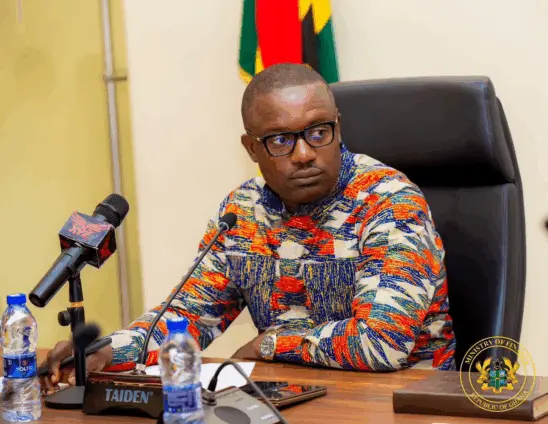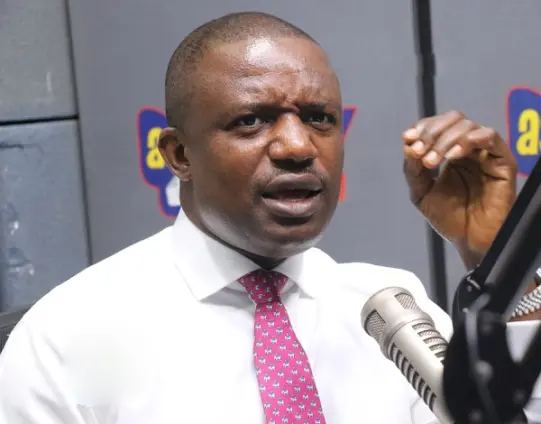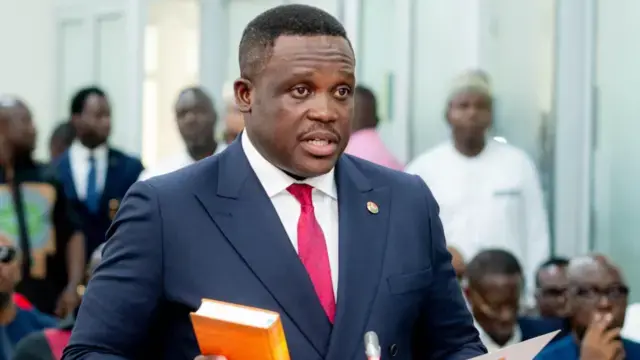The Ministry of Energy and Green Transition has swiftly responded to accusations leveled against Minister John Jinapor, who stands accused of ‘scaremongering’ regarding the nation’s power challenges. This rebuttal arrives amidst ongoing public debate about the stability and future of Ghana’s energy sector. The allegations, spearheaded by MP Tia Abdul-Kabiru Mahama, center on claims that Jinapor is using fear tactics to bypass standard procurement protocols. As the debate intensifies, the need for Ghana energy sector transparency becomes ever more crucial.
This article aims to dissect the Ministry’s immediate response to the Jinapor scaremongering claims and to analyze the validity of the accusations. By examining official statements and related reports, we hope to offer a clear understanding of the current controversy surrounding Ghana’s energy leadership and sector management.
Understanding the Allegations Against Minister Jinapor
MP Tia Abdul-Kabiru Mahama, during a recent interview on Channel One TV on May 17th, accused Minister Jinapor of employing alarmist rhetoric to circumvent established procurement processes within the energy sector. These are serious accusations that strike at the heart of good governance and financial probity.
According to MP Mahama, Jinapor has allegedly been “issuing one alarm after another…to create the impression of emergencies that justify awarding contracts through sole-sourcing.” He further claimed that contracts exceeding GH¢200 million have been awarded without due process, raising significant concerns about potential irregularities and misuse of public funds.
The practice of sole-sourcing, while permissible under certain circumstances, is often scrutinized due to its potential for abuse. Legal and ethical guidelines mandate that such contracts should only be awarded when competitive bidding is not feasible or practical. The accusations suggest that Minister Jinapor has not followed appropriate channels.
The Ministry’s Rebuttal: A Defense of Transparency
In response to these allegations, the Ministry of Energy and Green Transition, through its Public Relations Officer Richmond Rockson, has staunchly defended Minister Jinapor. Rockson asserted that Jinapor provided an honest and factual account to the Parliamentary Select Committee on Energy, with the intent to inform, not to induce panic.
“The Minister mentioned that there were only 2.6 days of fuel remaining at the time—but he also noted that fuel had subsequently been procured,” Rockson explained, refuting claims of scaremongering. This response attempts to contextualize Jinapor’s statements as part of a broader effort to keep parliament informed about the challenges facing the energy sector.
At the core of the debate lies the daunting $3.1 billion energy sector debt, a figure that represents the cumulative financial obligations as of December 2024. Coupled with this debt is the precarious state of fuel availability for thermal power plants, a critical component of Ghana’s energy mix. These factors directly impact national energy security and the government’s ability to provide consistent power supply.
Was Jinapor engaged in scaremongering, or was he merely presenting the facts? A balanced perspective requires considering the Ministry’s responsibility to keep the public and parliament informed about the state of the energy sector. Presenting factual challenges, however stark, does not automatically equate to inducing panic. The key lies in the communication style and the context in which information is conveyed.
Analyzing the Facts: Ghana’s Energy Sector Challenges
Ghana’s power supply relies on a mix of sources, including hydro, thermal, and increasingly, renewables. However, maintaining a stable power supply remains a significant challenge due to factors such as aging infrastructure, fuel supply constraints, and financial burdens.
The $3.1 billion energy sector debt is a growing concern that has accumulated over years due to various factors, including legacy contracts, tariff deficits, and operational inefficiencies. This debt not only constrains the sector’s ability to invest in new infrastructure but also threatens the financial viability of energy companies. Strategies for debt reduction, including renegotiating contracts and improving revenue collection, are crucial for the sector’s long-term sustainability.
In conclusion, the accusations against Minister Jinapor and the Ministry’s response underscore the critical importance of transparency and informed discussion in Ghana’s energy sector. Whether Jinapor’s communication style constitutes scaremongering or necessary transparency remains a point of contention. A balanced assessment requires considering the factual evidence, the context of the energy sector challenges, and the Ministry’s responsibility to inform the public. Moving forward, fostering open dialogue and ensuring accountability will be essential for navigating the complex issues facing Ghana’s energy future.
Image Source: MYJOYONLINE






















